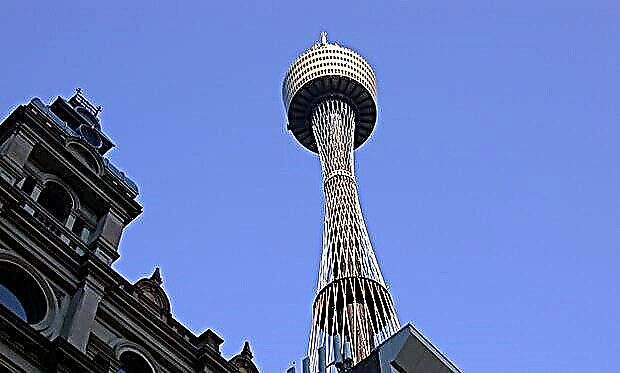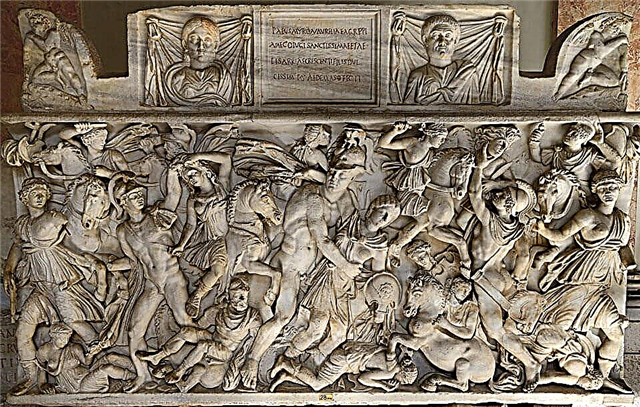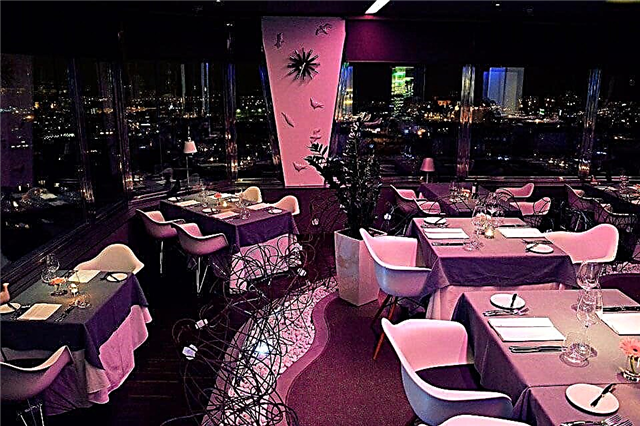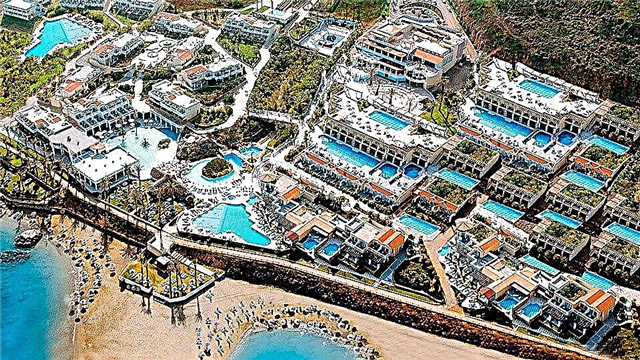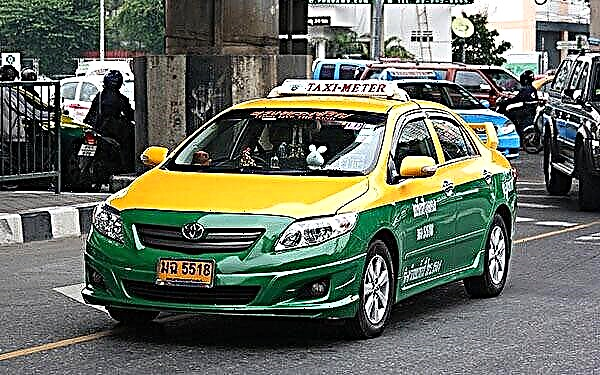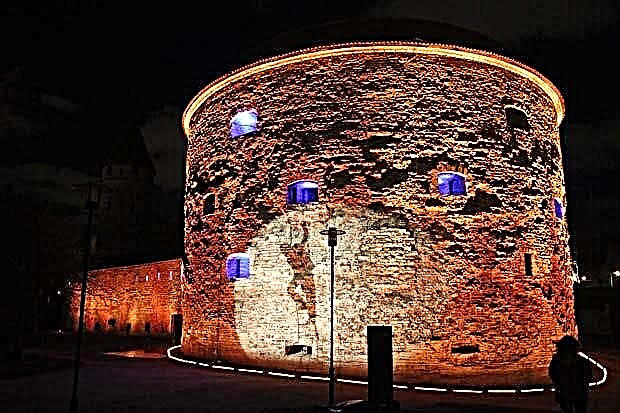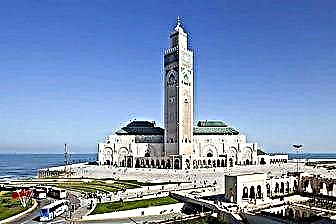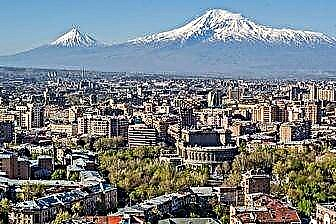More than a third of the population of Armenia lives in Yerevan. The city is the cultural, economic and political center of the country. If we consider 782 BC (when the Erebuni fortress was founded) as the date of the foundation of Yerevan, it turns out that the Armenian capital is older than Rome. There are no magnificent palaces and monumental Baroque facades, but there is a unique charm of streets, parks and small squares.
Yerevan could not recover for a long time after the devastating events of the 1990s. Over the years of decline and lack of funding, many buildings and entire areas require renovation. However, today it is clear that the city is being revived, turning into a beautiful and attractive place for tourists, where there are many worthy attractions.

The best hotels and hotels at affordable prices.
from 500 rubles / day
What to see and where to go in Yerevan?
The most interesting and beautiful places for walking. Photos and a short description.
Complex "Cascade"
Architectural composition, designed by A.O. Tomanian. It consists of several elements: a museum (Cafesjian Center for the Arts), stairs, a fountain and observation platforms, from where a panoramic view of Yerevan opens. The museum collection is made up of an extensive collection of glass items that once belonged to millionaire Levon Cafeschyan, as well as interesting works of contemporary art.

Sculpture "Smoking woman"
The original work of the contemporary sculptor F. Botero is located in the park opposite the Cascade complex. She represents the figure of a magnificent nude woman reclining on a pedestal with a cigarette in her hands. The installation of the sculpture caused a controversial reaction in society. Some townspeople argued that this was a challenge to traditional moral foundations, while others, on the contrary, considered it very original.
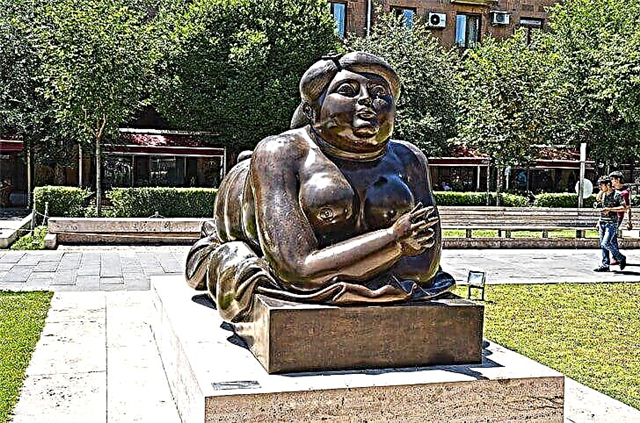
Matenadaran
Scientific research center and museum, where ancient Armenian manuscripts of great historical value are kept. Translated from Armenian “matenadaran” means “repository of manuscripts”. Today the collection contains several thousand manuscripts. It is believed that it has existed since the 5th century and was founded by the creator of the Armenian writing - M. Mashtots.

Tsitsernakaberd
Memorial complex dedicated to the numerous victims of the genocide of the Armenian nation in 1915. The memorial was built on the hill of the same name in the 1960s at the initiative of the local authorities. It consists of a 44-meter stele split in two, a cone of stone slabs with an eternal flame burning inside, and a 100-meter Wall of Mourning. In 1995 the complex acquired an underground museum.

Armenian Genocide Museum
The opening of the exposition was timed to coincide with the 80th anniversary of the genocide. According to the idea of the creators, the underground building of the museum is intended to symbolize the tomb in which more than a million lives have been "buried" since 1915. The collection is located on two floors. Its exhibits tell about the terrible tragedy of the Armenian people, who had to endure simply inhuman suffering during the persecutions organized by the Ottoman Empire.

Erebuni fortress
The ruins of an ancient city in the Ararat valley, where the state of Urartu flourished long before our era. Presumably, Erebuni was built during the reign of King Argishti I in the 8th century BC and served as a defensive structure. The date of foundation of the fortress is often considered the year of foundation of Yerevan. In the museum located near Erebuni, you can see a collection of valuable artifacts of the ancient kingdom of Urartu.

Republic Square
The central square of the Armenian capital, designed by A.O. Tomanian in the middle of the XX century. Its architectural appearance is formed by five buildings located along the perimeter. Among them is the Museum of the History of Armenia with a decent collection of paintings by famous artists. In the middle of the square there is an illuminated singing fountain. The facades of the houses are lined with pink and white tuff, the bases are made of basalt.

Government building of Armenia
The monumental structure of tuff and basalt is located on Republic Square. It was built in 1926-52. The facade is decorated with columns and high arched spans. Above the central arch is a tower with a clock dial. The architectural style of the building consists of a mixture of classics and medieval Armenian architecture. Today, some of the premises are used for exhibitions.

Charles Aznavour square
Charles Aznavour was born into a family of Armenian immigrants. To immortalize the name of this famous chansonnier, in 2001 the square near the Moscow cinema was renamed and named after the singer. He personally attended the opening ceremony of the renovated square. The building of the cinema itself, built in the 1930s in the style of constructivism, which was popular at that time, should be separately noted.

Northern Avenue
A pedestrian street that stretches for 1.5 km from Republic Square to Opera Square. The avenue was laid on the site where previously private houses were located. The government bought the territory from the population and started construction only in 2001, although the project was conceived by A.O. Tomanian at the beginning of the 20th century. The opening of the first part of the avenue took place in 2006, the second and third in 2007. Office buildings, luxury residential real estate, restaurants and shops are located along the street.

Historical Museum and Art Gallery of Armenia
The gallery and museum are located in one of the buildings on the central Republic Square. The museum exposition consists of ethnographic, archaeological, numismatic and historical departments. The collection of canvases includes works by Armenian, Russian and Western European artists. There are paintings by Aivazovsky, Levitan, Repin, Rubens, Tintoretto, Boucher.

Armenian Opera and Ballet Theater
A full-fledged musical theater was created on the basis of the opera class of the Yerevan Conservatory in 1932. A separate building was built by 1940. The southern facade of the stage is located opposite Freedom Square - one of the most beautiful places in Yerevan. Monuments to the national poet of Armenia O.T. Tumanyan and composer A.A. Spendiarov.

Sergei Parajanov Museum
S. Parajanov is an avant-garde director who made Armenian cinema famous all over the world. He was born and lived in Tbilisi. In 1991, after the death of the master, a museum dedicated to his name was opened in Yerevan. The exposition consists of the director's personal belongings, as well as works of art, from which one can get an idea of the difficult life and creative path of this extraordinary person. Inside the museum, the interior of Parajanov's Tbilisi house has been recreated.

Dalan Art Gallery
The gallery presents works by contemporary artists from the post-Soviet space. Many paintings are of great cultural value. The museum offers guided tours and an audio guide. There is also a souvenir shop where you can buy interesting designer items, and a cozy cafe in the courtyard, where visitors can relax from the bustle of the city over a cup of excellent Armenian coffee.

"Megerian Karpet"
Carpet factory and carpet museum of the Megerian family. Already the third generation of this family is engaged in the manufacture and restoration of carpets (the beginning of the enterprise was laid in 1917 in the USA). In 2002, the Megerians opened a workshop in Yerevan, which eventually grew into a large factory, larger than their other production facilities. All products are made by hand according to private orders using high quality wool and natural dyes.
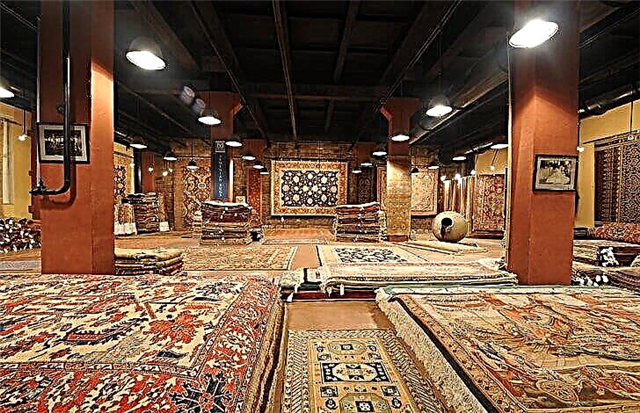
Yerevan Brandy Factory "ArArAt"
The legendary factory is one of the symbols of Armenia. The famous "Ararat" is produced here, as well as several exclusive sorts of cognac are bottled exclusively for private orders: "Kilikia", "Sparapet", "Erebuni", "Noah's Ark". The production was founded in 1887 by the merchant N. Tairyants. You can get to the factory with a guided tour.

Yerevan train station
The building was erected in the 1950s on the very spot where the first railway line connecting Tiflis and Alexandropol passed at the beginning of the 20th century. Complete reconstruction of the complex was carried out in 2010. During the renovation work, historic interiors were restored, communications were updated and modern equipment was supplied to meet the needs of the increased passenger flow.

Blue Mosque
The temple was erected in the middle of the 18th century by order of Khan Huseynali Khan Qajar, who at that time was the ruler of the Erivan Khanate. The Blue Mosque symbolized the fortress of the Armenian-Iranian friendship. Today it is the only functioning mosque in the capital of the country, simultaneously serving as the spiritual center of the Iranian community. The dome and part of the facade of the temple are faced with blue tiles.

Cathedral of St. Gregory the Illuminator
The temple was built in 2001 according to the project of S. Kyurkchan with donations from the Manukyan, Gevorgyan and Nazaryan families. After Tsminda Sameba in Tbilisi, it is the largest Christian cathedral in Transcaucasia. It consists of three buildings: the Church of the Holy Queen Ashkhen, the Church of St. Tiridates III and the main building itself. The idea of construction belonged to Catholicos Garegin I.

Church of St. Zoravor
One of the oldest temples in Yerevan, built at the end of the 17th century. It is located in the central part of the capital. Earlier in its place there was a monastery and a chapel at the tomb of St. Ananias, which were destroyed during the earthquake. According to legend, the first temple was founded in the 7th century. The church was restored in the 1970s, after which it became active again.

Monument "Mother Armenia"
Monument erected in 1967 in honor of the victory in the Great Patriotic War. He represents the resolute figure of a woman with a sword in her hands and a shield at her feet, personifying the Motherland. The monument is located on the territory of Haghtanak Park in the center of Yerevan. Inside the powerful pedestal there is a museum dedicated to the Second World War and the events of the Karabakh wars.

Flea market "Vernissage"
Antique market between st. Buzand and st. Aram, which sells old books, coins, paintings, handmade figurines, carpets and jewelry. Many connoisseurs of antiquities, art critics and jewelers prefer to shop here. Tourists can buy unique souvenirs at Vernissage at fairly reasonable prices, or simply walk among the counters with unusual things.

Yerevan Zoo
The zoo was established in 1941 on the initiative of Professor A. Sarkisov. At the moment, about 300 species of animals (almost 3 thousand individuals) live on its territory, who arrived here from different parts of the planet. For animals, conditions close to natural have been created, up to the imitation of independent obtaining food. The zoo is spread over a green area of 25 hectares in the northeastern part of the city.

Lovers' park
City public park in the central part of the capital of Armenia. Its history began in the 18th century. At that time, it was located in the suburbs of Yerevan and was called the Kozern Garden. In the second half of the 20th century, the place became popular with couples in love, so in 1995 the city authorities decided to rename the park. In 2005-2008, the park was completely reconstructed.

Khor Virap
A monastery at the foot of Mount Ararat, located near the Turkish border and about 40 km from Yerevan. According to the biblical texts (or their interpretation), Noah's ark landed on the site of the monastery after the end of the Flood. The monastery was founded in the 7th century on a hill where the ancient city of Artashat was previously located - the capital of the Armenian state under King Artashes I.


